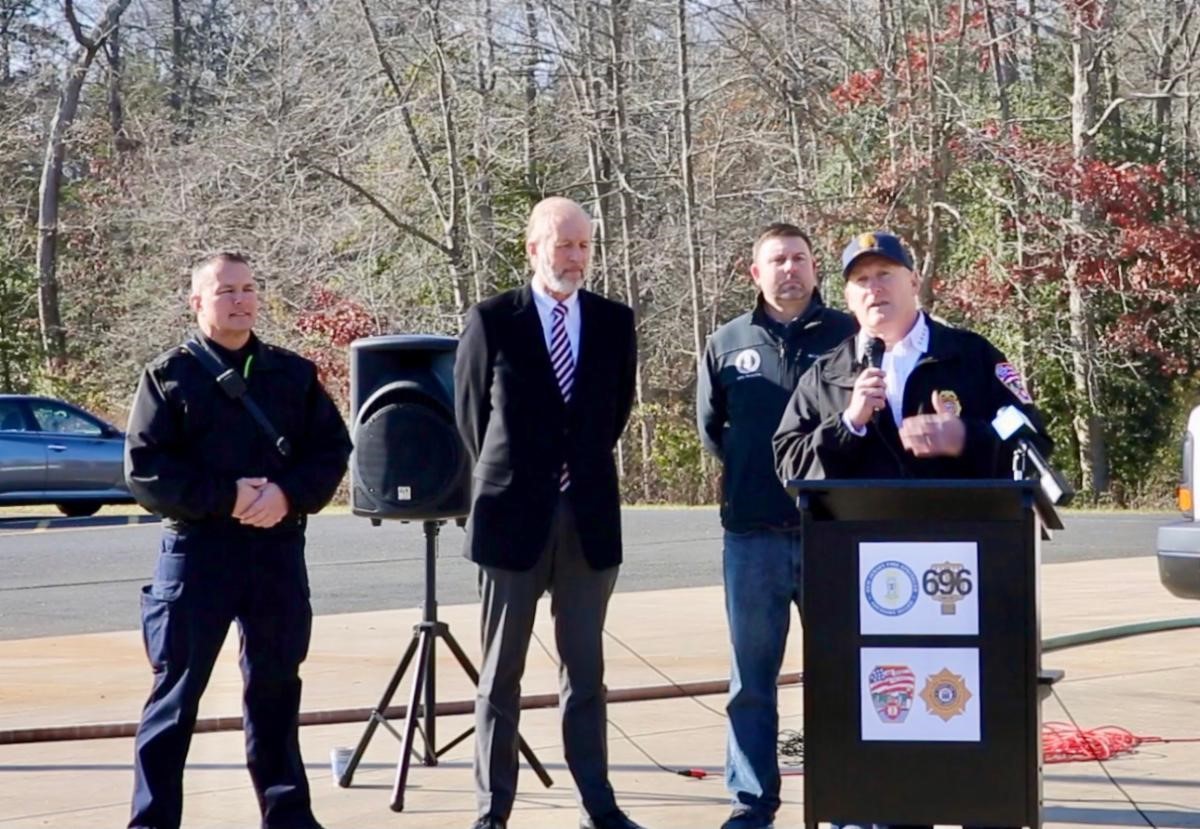|
TRENTON, NJ – Now that the holiday season is underway, the New Jersey Department of Community Affairs’ (DCA) Division of Fire Safety (NJDFS) is reminding residents of the increased risk of fire that seasonal decorations such as live trees, ornaments, lights, and candles can present in the home.
“The holidays are a joyous time as we celebrate many religious, cultural, and spiritual traditions in New Jersey, but we want everyone to be aware of the inherent risk of fire during this time of the year,” said Lt. Governor Sheila Y. Oliver, DCA Commissioner. “Please pay special attention to these important tips as you are decorating and cooking this holiday season so we can make it safe and enjoyable for everyone.”
Holiday related hazards can include dry and unwatered natural trees, decorations both inside and outside the home and burning candles left unattended. Additionally, with the onset of cold weather, the use of both traditional and alternative home heating devices, and the possibility of long-term power failures resulting from severe storms, can increase the possibility of fire and carbon monoxide poisoning.
“With the heating and holiday season in full swing, we’re advising all residents to read and follow these safety tips along with local fire department recommendations and common fire safety procedures to help to make this holiday a safe one,” said Richard Mikutsky, State Fire Marshal and Director of the Division of Fire Safety.
The following are simple steps and precautions people can take to prevent fires during the holiday season:
CANDLES
· It is best to use battery-operated candles, which have all the essentials of a live candle, without the risk of an open flame.
· A pillar candle with a thick base, or ideally contained in glass, is a better choice for a live candle. They have a wider platform on a surface and are less susceptible to being knocked over. Placing a candle inside a glass globe offers more protection.
· For additional protections, keep live candles away from flammable surfaces by at least a foot, including draperies, curtains, and loose fabric.
· Once lighted, it is best not to move a candle, as it is hot to the touch and may cause it to fall.
· Do not leave candles unattended. Keep them in one location and make sure at least one person is present when they are lit.
· When a candle is extinguished, use a metal candlesnuffer. Blowing out a candle may send a hot ember to a flammable surface.
TREES
· Choose a tree with fresh, green needles that do not fall off when touched.
· Take advantage of fire-resistant alternatives to live trees.
· If using a live tree, keep the tree well-watered, away from any heat source, and dispose of it at the first sign of dryness.
DECORATIONS
· Only use decorations that are flame-retardant or non-flammable.
· Check holiday lights each year for frayed wires or excessive wear.
· Don’t link more than three strands of holiday lights and replace any lights with worn or broken cords or loose bulb connections.
· Use lights that have the label of a recognized testing laboratory. Some lights are only for indoor or outdoor use.
· Projectors that provide displays from a single source rather than heat-producing lights can serve as an attractive and safe alternative to traditional decorative lighting.
· Fireplaces draped with stockings and other décor are a fire hazard. Yule Log alternatives are available via streaming services and on the web and offer the added benefit of accompanying holiday music.
· Never use lit candles to decorate the tree.
· Always turn off Christmas tree lights before leaving your house or going to bed.
ALTERNATIVE HEATING DEVICES
· Make certain your space heater has an Oxygen Depletion Sensor (ODS) sensor. ODS sensors are found in units made after 1984 and will turn off the heater if it senses high levels of carbon monoxide.
· Look for an independent lab label such as UL, which set minimum safety standards for manufacture.
· Make sure the device has a protective grill in front of the heating element, which is the part that glows.
· Turn the space heater off when you leave the room.
· Enforce the “3 Foot Rule” with young children. Keep them at least 3 feet away.
· Keep bedding, curtains, and clothing 3 feet away from the space heater, as well.
· Plug space heaters directly into wall outlets. Never use with a household extension cord. Make sure the device has a “tip over” switch that turns the heater off if it’s knocked over.
· Never run any size cord, extension or hard wired, under a rug where damage can occur unnoticed.
The most effective defense in preventing a fire emergency is to have working smoke and CO alarms on every level of the home coupled with a family escape plan.
The Division of Fire Safety serves as the central fire service agency in the State. The Division is responsible for the development and enforcement of the State Uniform Fire Code and other community risk reduction strategies, as well as certification and ongoing training for the state career and volunteer firefighter corps.
To follow the Division of Fire Safety on Twitter, please visit: twitter.com/NJFireSafety
DCA offers a wide range of programs and services, including affordable housing production, fire safety, building safety, community planning and development, local government management and finance, and disaster recovery and mitigation.
|
 Official Site of The State of New Jersey
Official Site of The State of New Jersey
